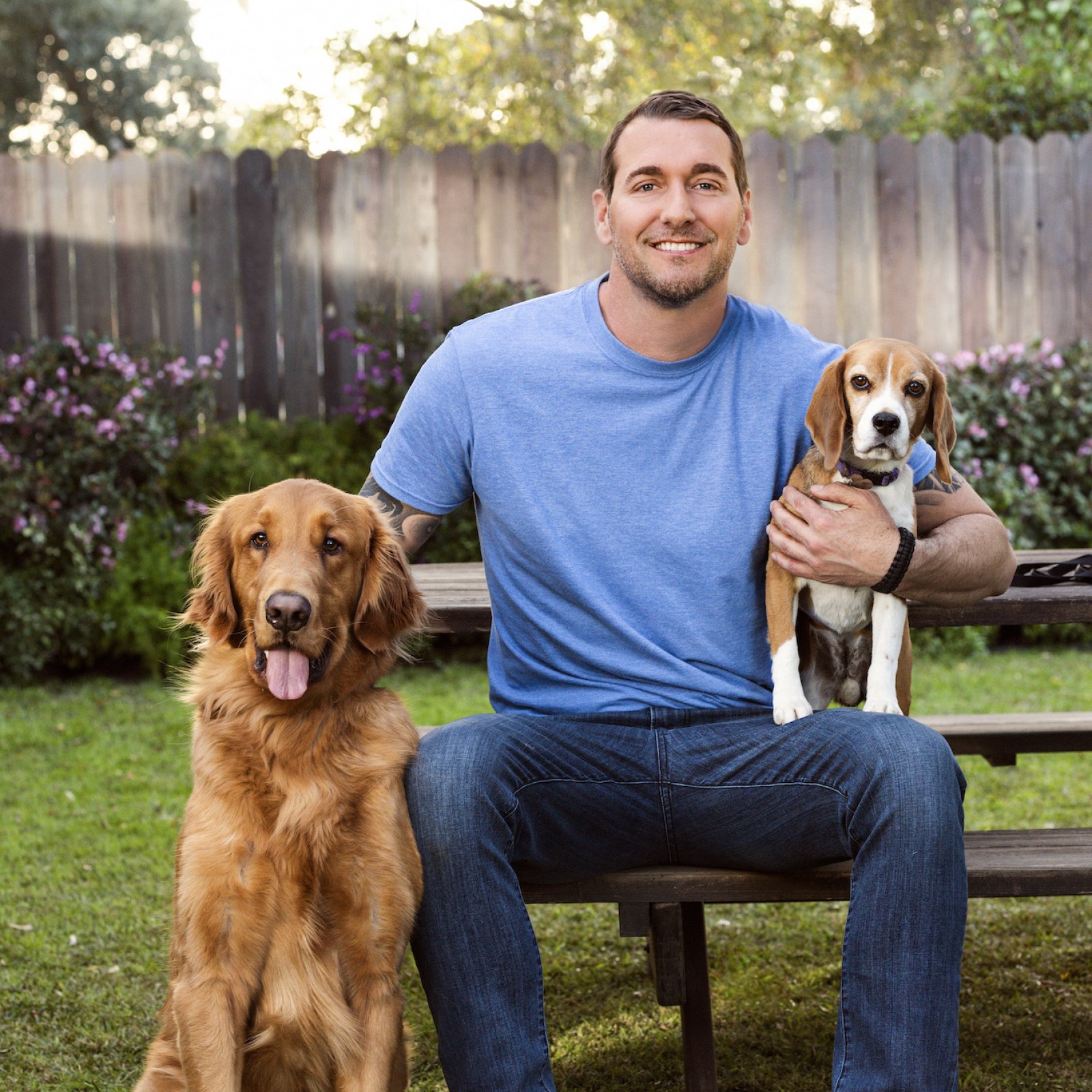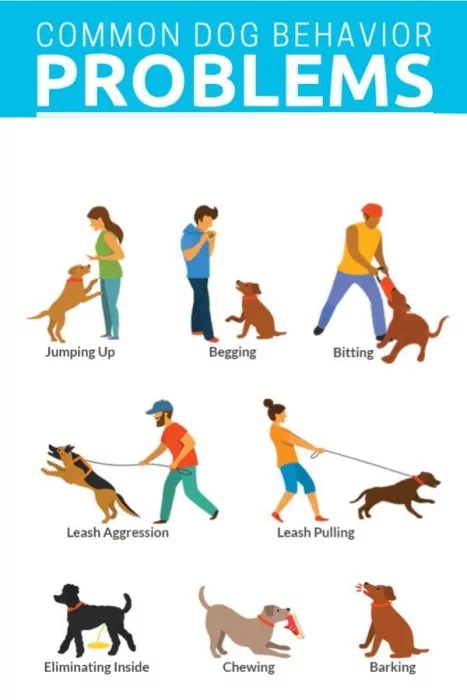The Benefits of Choosing Dog Training Near Me for Tailored Solutions
The Benefits of Choosing Dog Training Near Me for Tailored Solutions
Blog Article
Unlock Your Pet dog's Possible: Proven Pet Training Approaches for Success
Efficient dog training is a nuanced procedure that hinges on understanding canine actions and utilizing scientifically backed approaches. By integrating positive reinforcement, developing clear commands, and focusing on socializing, canine proprietors can cultivate an efficient partnership with their animals.
Recognizing Dog Habits
Understanding canine actions is important for efficient training and cultivating a positive connection in between pet dogs and their owners. An extensive understanding of canine body movement, vocalizations, and social interactions is vital for identifying their feelings and demands. Dogs interact mostly via non-verbal cues; for instance, a wagging tail might indicate enjoyment, while pinned ears can indicate anxiety or entry.

In addition, ecological elements play a significant role in forming a dog's habits. Changes in regular, new surroundings, or the visibility of unfamiliar people can result in tension or anxiety in canines. Recognizing these triggers allows owners to minimize unfavorable reactions and create suitable training strategies.
Inevitably, a deep understanding of canine behavior lays the foundation for effective training techniques, improving both actions and the general bond between the pet and its owner. dog training charlotte. This understanding is essential for promoting a well-adjusted, happy canine friend
Positive Reinforcement Strategies
Efficient training counts heavily on favorable support strategies, which have been revealed to yield considerable results in shaping wanted behaviors in pet dogs. This strategy includes rewarding a pet dog for showing particular habits, thereby enhancing the chance that these behaviors will be duplicated. Rewards can take numerous kinds, including treats, appreciation, playthings, or play, depending on what inspires the private pet dog.

It is important to progressively eliminate rewards as the dog finds out the habits, transitioning to intermittent support. This method maintains the actions in time while preventing dependence on constant benefits. By concentrating on positive support, trainers can cultivate a relying on connection with their pets, promoting a cooperative and healthy training setting that enhances general obedience and efficiency.
Establishing Constant Commands
A fundamental element of effective dog training is the establishment of consistent commands. Uniformity in commands is essential for reliable communication between the pet dog and the instructor. When commands are uniform, canines find out to link specific words with preferred habits, which increases the training process and improves understanding.
To develop regular commands, it why not find out more is necessary that all household members utilize the same terms and motions. If one individual utilizes "rest" while an additional states "sit down," it can create confusion for the dog. Select clear, unique words for commands and ensure everybody entailed in the pet's training follows these selections.
Additionally, repetition is key. Reinforce commands through frequent method, making certain that the pet obtains enough possibilities to react appropriately. When a pet efficiently adheres to a command, instant favorable reinforcement must comply with. This can be in the type of treats, appreciation, or playtime, solidifying the link between the command and the action.
Finally, hold your horses. Establishing consistent commands takes time and initiative. With commitment and clarity, you will certainly assist your canine create a solid understanding of expectations, eventually causing a well-behaved friend.
Socialization and Direct Exposure
Interacting socially a dog is important for cultivating a well-adjusted and positive buddy. This procedure involves revealing your canine to a selection of atmospheres, individuals, and other pets to develop their social skills and flexibility. Early socialization, preferably between the ages of 3 to fourteen weeks, is important, as it prepares for a pet dog's future behavior.
During socializing, aim house training a rescue dog to supply favorable experiences in different setups, such as parks, hectic roads, and homes with various other animals. Present your dog to numerous stimulations, including sounds, views, and scents, making sure that each experience is rewarding. This exposure aids mitigate worry and anxiousness, paving the method for a much more resistant canine.
Engaging in controlled team play sessions with various other pets can additionally boost social abilities, showing your family pet proper interactions and limits. Prioritizing socialization will significantly contribute to your canine's overall happiness and actions throughout their life.
Overcoming Common Educating Difficulties

One more regular concern is interruption. Pets may have a hard time to concentrate in active or unfamiliar setups. Progressively desensitize your canine to disturbances by starting training in a peaceful setting and gradually introducing more stimuli as they come to be competent (dog training charlotte). Favorable support techniques, such as treats and praise, can preserve inspiration and emphasis.
Additionally, behavioral issues like jumping or excessive barking can become aggravating. Address these by instructing different actions, such as resting comfortably when welcoming guests. Uniformity and persistence are vital; enhance wanted actions constantly and prevent scolding, which can bring about confusion.
Lastly, recognize that each dog is unique, and training timelines might differ. Tailor your method to your dog's specific demands, and look for expert guidance if necessary. With perseverance and the ideal techniques, overcoming these challenges can lead to a well-trained, satisfied canine friend.
Final Thought
To conclude, opening a canine's potential demands a thorough technique that incorporates an understanding of canine actions, the application of positive reinforcement methods, and the establishment of regular commands. Early socialization and direct exposure to diverse settings further boost a pet dog's adaptability and self-confidence. By dealing with usual training difficulties with customized techniques and patience, a cooperative and unified relationship in between pet and handler can be cultivated, ultimately causing a well-behaved buddy with the ability of flourishing in numerous circumstances.
Reliable canine training is a nuanced procedure that hinges on comprehending canine actions and employing scientifically backed techniques.Comprehending pet behavior is necessary for efficient training and fostering a positive connection in between pets and their owners.Efficient training counts heavily on favorable support techniques, which have been shown to produce substantial results in shaping preferred habits in pets. When commands are consistent, dogs learn to associate particular words with preferred visit their website actions, which increases the training process and enhances understanding.
In conclusion, unlocking a pet dog's prospective demands a comprehensive approach that incorporates an understanding of canine habits, the application of positive reinforcement methods, and the establishment of constant commands.
Report this page